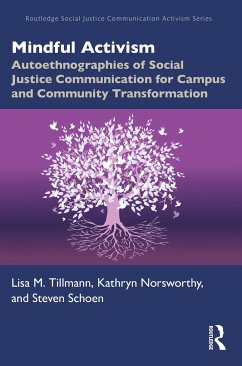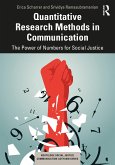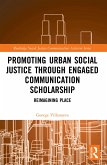This collection immerses scholars of communication and related disciplines in narratives of and conversations about social-justice-focused activism.
Through autoethnographic essays, Mindful Activism chronicles the authors' experiences as activist academics challenging and seeking to remedy injustices on campus and in local and global communities. Those experiences range from engaging in a single activist act to collaborating over many years with oppressed communities and social change groups. Building upon communication activism research and following a liberation-based transformative learning model, the book shows both activism in action and deep reflection on that activism. The authors re-experience activist experiences, draw out lessons, and invite readers to apply those to their own social justice endeavors. Mindful Activism also demonstrates how mindfulness supports activists in deepening their awareness and understanding of themselves, others, and social systems.This orientation increases the likelihood that activists will remain grounded enough to respond to injustice mindfully/effectively.
The book will enrich courses on activism, social justice, dialogue, narrative inquiry, qualitative methods, autoethnography, and general graduate studies, and will resonate with scholars committed to building a more equitable and just world.
Through autoethnographic essays, Mindful Activism chronicles the authors' experiences as activist academics challenging and seeking to remedy injustices on campus and in local and global communities. Those experiences range from engaging in a single activist act to collaborating over many years with oppressed communities and social change groups. Building upon communication activism research and following a liberation-based transformative learning model, the book shows both activism in action and deep reflection on that activism. The authors re-experience activist experiences, draw out lessons, and invite readers to apply those to their own social justice endeavors. Mindful Activism also demonstrates how mindfulness supports activists in deepening their awareness and understanding of themselves, others, and social systems.This orientation increases the likelihood that activists will remain grounded enough to respond to injustice mindfully/effectively.
The book will enrich courses on activism, social justice, dialogue, narrative inquiry, qualitative methods, autoethnography, and general graduate studies, and will resonate with scholars committed to building a more equitable and just world.
"This is an important book for communicating both a vision of hands-on activist pedagogy and for understanding what it feels like to try to live up to the demands of collaborative activism both within and outside the university."
-Arthur P. Bochner, National Communication Association Distinguished Scholar and Past President
"This is an excellent text for any scholar who identifies as doing social justice work. Scholars who study identity groups or other groups impacted by social justice work (e.g., LGBTQ+, incarcerated people, refugees, etc.) should indeed read Mindful Activism, as it provides an excellent model for approaching the subject with principles of care, relationality, and the co-construction of knowledge."
-Courtney D. Tabor, University of Oregon, USA
-Arthur P. Bochner, National Communication Association Distinguished Scholar and Past President
"This is an excellent text for any scholar who identifies as doing social justice work. Scholars who study identity groups or other groups impacted by social justice work (e.g., LGBTQ+, incarcerated people, refugees, etc.) should indeed read Mindful Activism, as it provides an excellent model for approaching the subject with principles of care, relationality, and the co-construction of knowledge."
-Courtney D. Tabor, University of Oregon, USA








